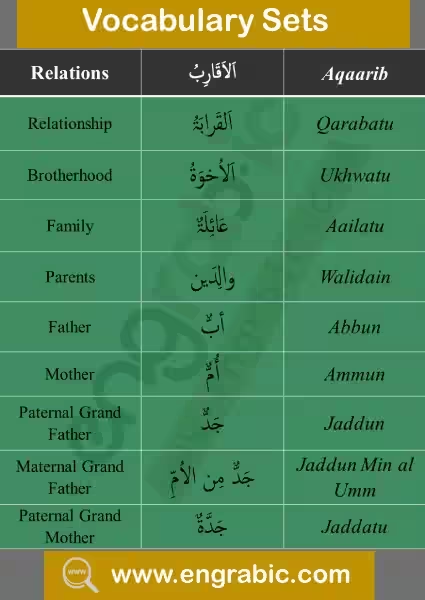
Arabic, a language steeped in history and culture, boasts a rich vocabulary brimming with evocative words. This article delves into the beautiful world of Arabic words, exploring their meanings, cultural connotations, and significance, providing a deeper understanding of the language and the cultures that embrace it. Learning Arabic words with meaning in English opens a window into a world of rich cultural understanding.
The Aesthetic Essence of Arabic Words
Arabic possesses a remarkable aesthetic quality that transcends simple translations. Words like jamāl (beauty), ḥubb (love), and salām (peace), while directly translatable, carry profound cultural connotations. Jamāl, for instance, imbues beauty with a sense of grace and elegance that is deeply rooted in the aesthetic sensibilities of Arab culture. The concept of beauty encompasses more than just physical attributes; it often reflects inner values and the harmony between the individual and the world around them. Similarly, ḥubb (love) extends beyond mere romantic affection, encompassing familial bonds, friendship, and the deep connection with one’s community. The concept of salām (peace) is not just the absence of conflict; it represents a holistic state of well-being, encompassing tranquility, harmony, and mutual respect within a society. These words are more than just labels; they are reflections of core values and ideals.
Words of Profound Meaning: Destiny, Patience, and Faith
Arabic is also a language of profound thought and philosophy. Words like qadar (destiny), ṣabr (patience), shukr (gratitude), and īmān (faith) resonate with deep philosophical underpinnings. Qadar doesn’t merely denote fate; it speaks to the acceptance of a predetermined path and the understanding of a divine order. Ṣabr (patience) isn’t simply tolerating hardship; it is a virtue that allows individuals to navigate challenges with grace and resilience. Shukr (gratitude) is a cornerstone of societal harmony, fostering appreciation for the blessings in life, from material possessions to good health. Īmān (faith) goes beyond mere belief; it is a commitment to a set of values and principles, often intertwined with Islamic tenets. These words offer profound insights into the spiritual and intellectual landscape of Arabic culture.
Kindred Spirits: Words of Kindness and Hospitality
Arabic culture is well-known for its warmth and hospitality. Words like laṭīf (kind), karīm (generous), and muḍyāf (hospitable) capture the essence of this welcoming spirit. Laṭīf, for instance, describes someone who is not only polite and considerate but also possesses a gentle and compassionate nature. Karīm, in its numerous usages, encompasses generosity in all its forms, from hospitality to philanthropy and acts of kindness. Muḍyāf, focusing on the act of hospitality, reflects a profound respect for guests and their well-being, acknowledging them as significant members of the larger community.
Strength and Resilience: Powerful Arabic Words
The language also speaks to the strength and resilience of its people. Words like ʿazīma (determination), iṣrār (persistence), and quwwa (strength) highlight the emphasis on these qualities within Arab culture. ʿAzīma is more than just resolve; it embodies a steadfast commitment to achieving goals, even amidst obstacles. Iṣrār, the unwavering pursuit of a goal, describes unrelenting dedication and perseverance. Quwwa, representing strength, encompasses physical and mental fortitude, highlighting the importance of inner resilience.
The Spiritual Significance of Quranic Arabic
The Quran, a sacred text in Islam, profoundly shaped the Arabic language. Words like Raḥmān (The Most Gracious) and Raḥīm (The Most Merciful) are not just descriptive; they encapsulate profound spiritual concepts. These words, and many others found in the Quran, are imbued with intense spiritual significance, forming the bedrock of Islamic values and beliefs.
Unique Arabic Words: Challenging Translations
Many Arabic words are challenging to translate directly into English because they embody complex cultural concepts. Words like tarraffuʿ (elevated demeanor), murūʾa (chivalry), and ʿishra (companionship) capture nuances of behavior and social interactions that are deeply ingrained in Arab culture but difficult to fully represent in other languages. These words embody the unique social dynamics and values of Arab communities.
Expressions of Affection and Closeness
Arabic possesses a rich vocabulary for expressing the warmth and intimacy of close relationships. Phrases like ḥabībi (my beloved), qalbi (my heart), and nūr ʿayni (light of my eye) highlight the importance of personal connections. These expressions offer a glimpse into the emotional depth and warmth often found in Arab personal relationships.
Learning Arabic: A Journey of Discovery
For those interested in exploring the rich linguistic and cultural world of Arabic, the Kalimah Center offers an excellent platform. Their online courses provide a structured and supportive environment for learning the language, helping you build confidence and proficiency.
This journey into the world of Arabic words with meaning in English is just the beginning. The beauty, depth, and diversity of the language are vast and multifaceted, inviting further exploration and appreciation.
Arabic Words and Their Meanings: Frequently Asked Questions
This FAQ section addresses common inquiries about Arabic words and their English equivalents, delving into their cultural and linguistic significance.
What are some beautiful Arabic words and their meanings?
Arabic boasts many words that evoke beauty and emotion. “Jamāl” signifies beauty, embodying aesthetic appreciation deeply rooted in Arab culture. “Ḥubb” translates to love, encompassing a range of emotional connections and passionate affection. “Salām” means peace, encompassing not only the absence of conflict but also a sense of well-being and harmony cherished within Arab society. These words transcend simple translations, reflecting profound cultural values.
What are some Arabic words with profound philosophical meanings?
Several Arabic words carry significant philosophical weight, particularly within Islamic thought. “Qadar” signifies destiny, highlighting the concept of predetermined events and the acceptance of fate. “Ṣabr” represents patience, emphasizing resilience and endurance in the face of adversity. “Shukr” embodies gratitude, a pivotal value in appreciating blessings and acknowledging divine provision. “Īmān” signifies faith, encompassing spiritual belief and devotion, a cornerstone of Islamic teachings.
What are some “nice” Arabic words expressing kindness and hospitality?
Arabic culture values kindness and hospitality. “Laṭīf” means kind, conveying a gentle and considerate nature. “Karīm” translates to generous, highlighting a willingness to give and share. “Muḍyāf” signifies hospitable, illustrating the warm welcome and generosity often associated with Arab societies.
What are some powerful and strong Arabic words?
Arabic also encompasses powerful words reflecting resilience and determination. “ʿAzīma” denotes determination, emphasizing steadfastness and resolve. “Iṣrār” signifies persistence, highlighting unwavering commitment to goals. “Quwwa” represents strength, both physical and moral, a vital quality appreciated in Arab cultures.
What are some Arabic words from the Quran and their meanings?
The Quran plays a significant role in the Arabic language. “Raḥmān” refers to the Most Gracious, emphasizing divine benevolence and compassion. “Raḥīm” means the Most Merciful, signifying divine tenderness and forgiveness. These words hold profound spiritual significance in Islam.
How do some Arabic words differ from their English translations?
Certain Arabic words are difficult to translate directly into English, as they encapsulate unique cultural and conceptual nuances. “Tarraffuʿ” encompasses an elevated demeanor, reflecting a sophisticated approach to social interactions. “Murūʾa” represents chivalry, signifying a code of honor and ethical conduct. “ʿIshra” denotes companionship, encompassing a deep connection and shared experiences. These words reveal the distinctiveness of Arab cultural values.
What are some endearing Arabic phrases for expressing affection?
Arabic provides intimate phrases for expressing affection. “Ḥabībi” translates to “my beloved,” expressing deep love and closeness. “Qalbi” means “my heart,” conveying the emotional depth of the relationship. “Nūr ʿayni” signifies “light of my eye,” expressing immense fondness and affection for someone. These phrases highlight the warm and intimate personal relationships in Arab communities.
Are there any resources for learning Arabic?
Yes, there are online resources available to learn Arabic. The Kalimah Center offers online courses aimed at equipping learners with confidence and proficiency in the language.








